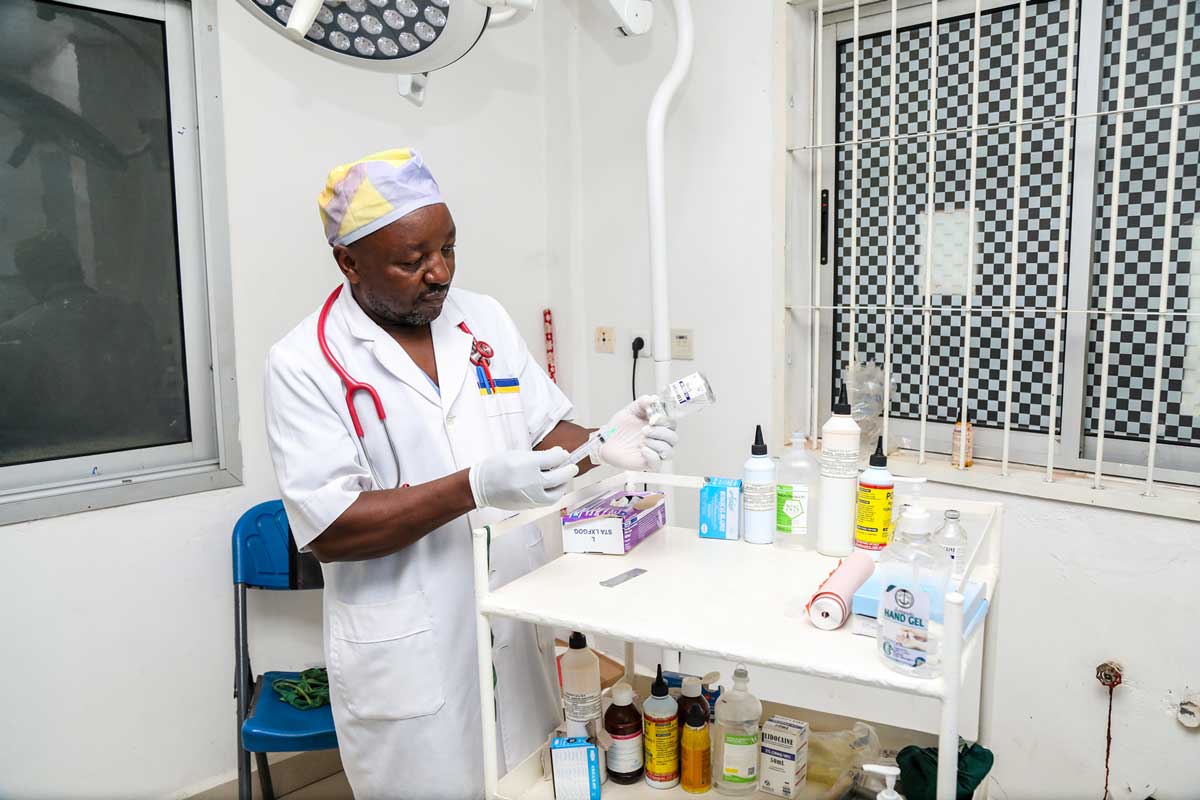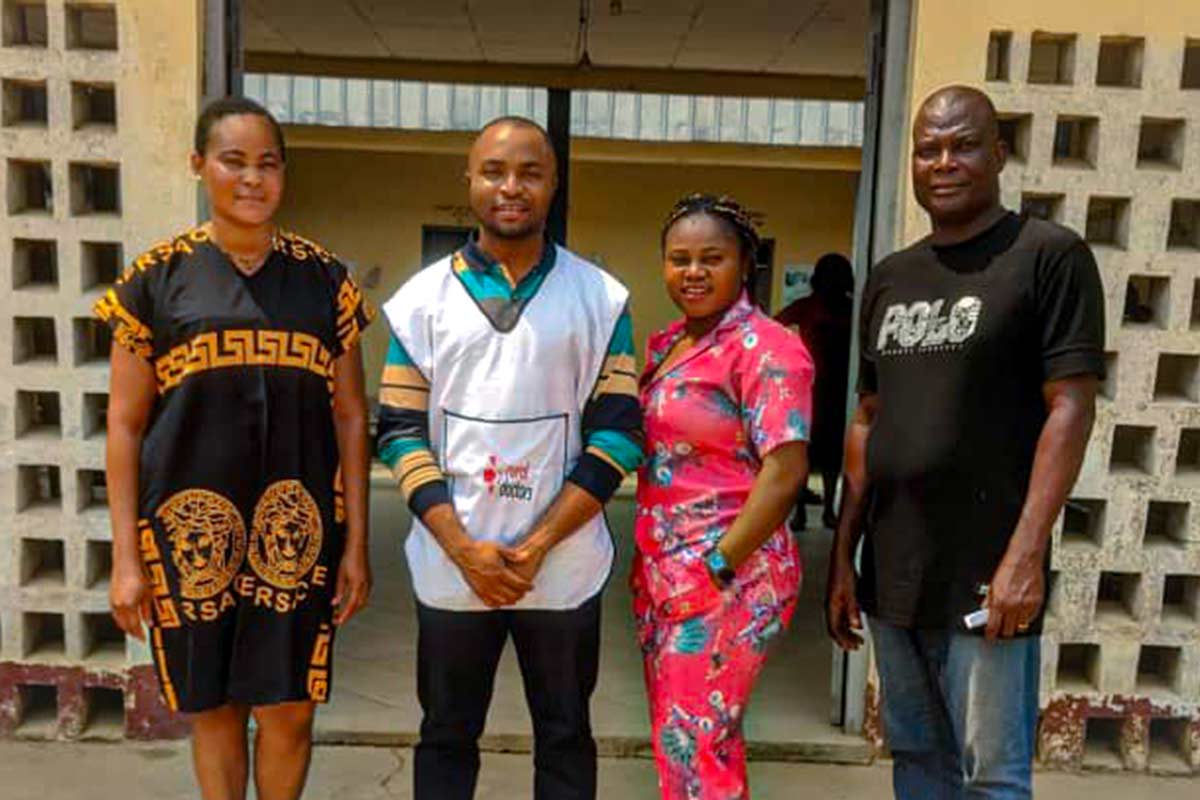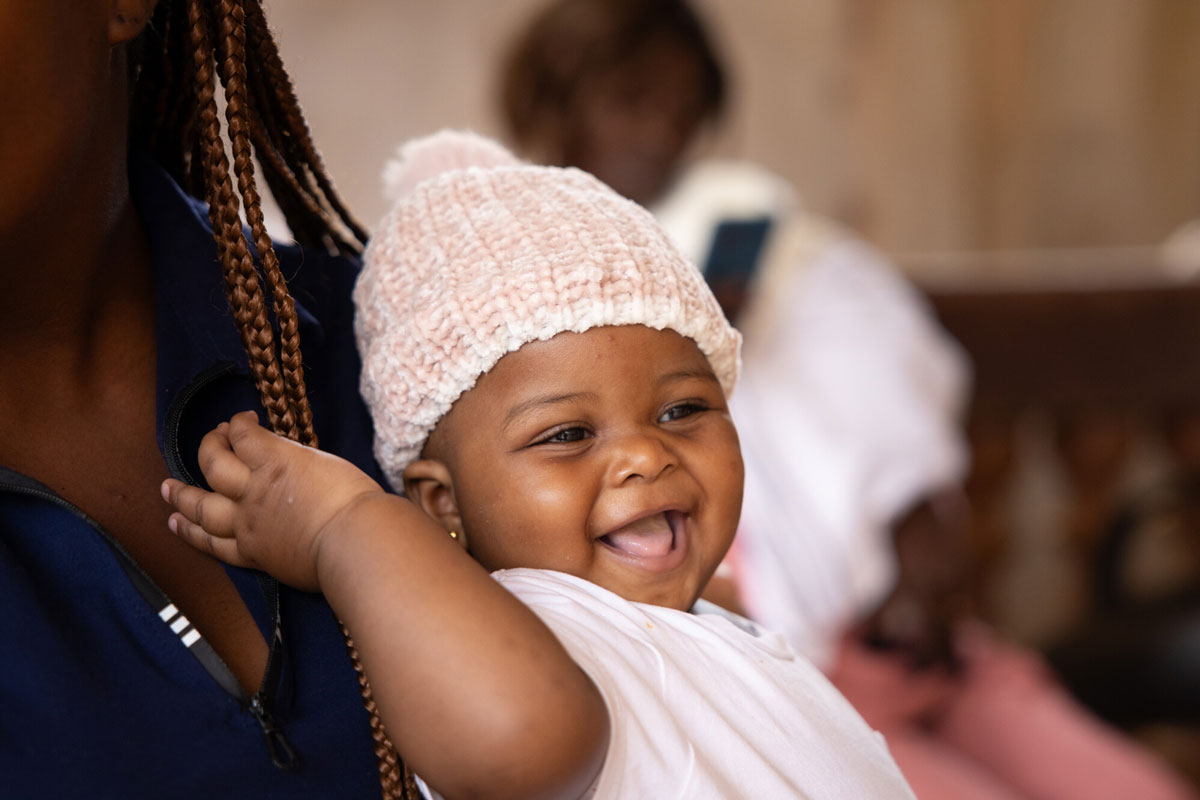Cameroon’s malaria vaccination roll-out finds an enthusiastic reception
Though new vaccines often meet with parental wariness, health workers on the ground say mums and babies are turning out in force for the RTS,S jab.
- 13 February 2024
- 5 min read
- by Akem Olives Nkwain
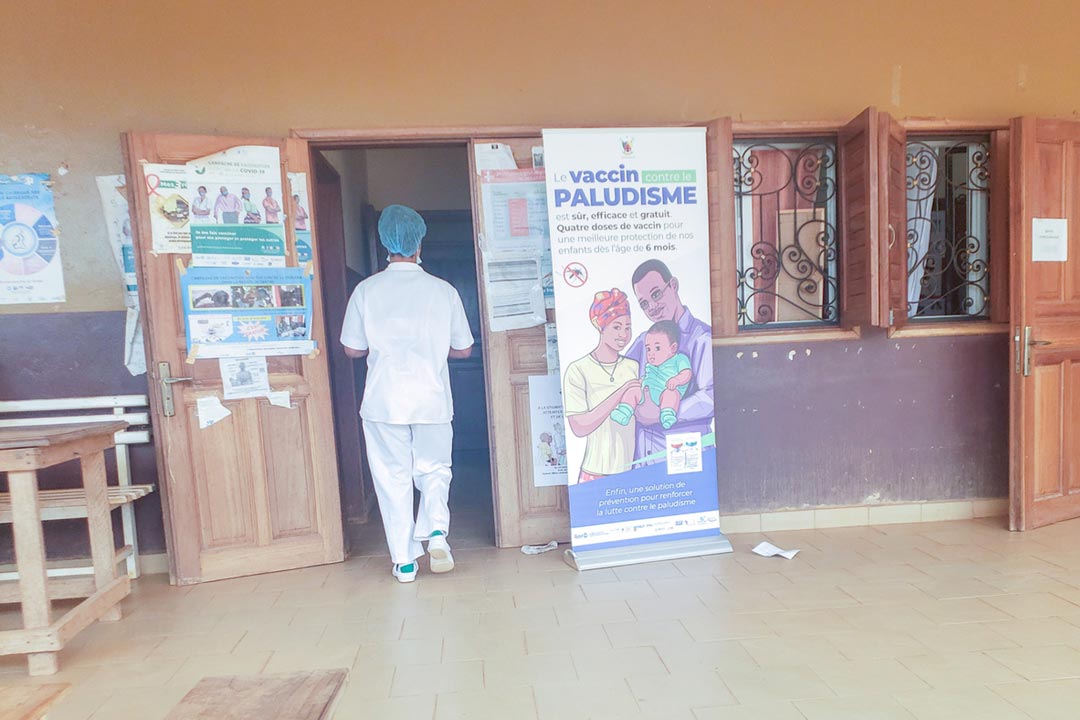
Since Cameroon brought the groundbreaking RTS,S malaria vaccine into its Expanded Programme on Immunization (EPI) arsenal last month, health workers in earmarked vaccination centres across 46 health districts have been inoculating a first generation of Cameroonian children against the deadly parasitic disease.
"We started vaccination against malaria on January 22, 2024. That day, our first jab was issued to a set of twins – who had just clocked six months," recalls Ekotto Daniele, who is the senior nurse in charge of routine immunisation at Soa District Hospital in Yaoundé.
"We’ve waited for this vaccine for too long. Malaria was like a monster to us. You treat it today and it resurfaces the next day. So, discovering a vaccine to end this monster is just commendable."
- Nurse Ekotto Daniele, Soa District Hospital, Yaundé
She flips through a hospital register. "Today we've vaccinated two children. Since we started, there's hardly a day we've not vaccinated at least one child."
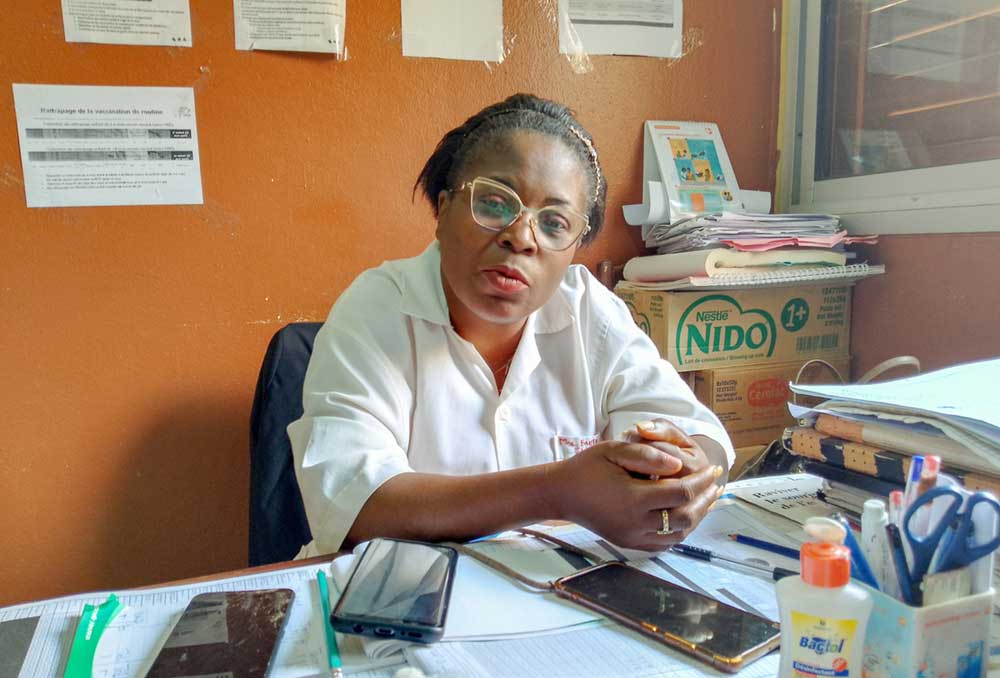
Credit: Akem Olives Nkwain
For nurse Ekotto, the work is welcome – she describes it as "relieving. We've waited for this vaccine for too long. Malaria was like a monster to us. You treat it today and it resurfaces the next day. So, discovering a vaccine to end this monster is just commendable."
"It pleases me – not just as medical personnel, but as a mother whose children have experienced several bouts of malaria before. It wasn't easy to manage," Ekotto reflects.
Vaccine optimism
Although a staggering 14,000 people are thought to die of malaria in Cameroon each year, the vaccine's introduction was shadowed by concerns that parents might shy away from the novel jab.
Parents are typically harder to mobilise for an unfamiliar vaccine, Ekotto confirms – but this time, she's been pleasantly surprised: the level of vaccine acceptance in Soa is high.
"Less than a month into the roll-out at our centre, we've jabbed 40 children, whose mothers turn up with them voluntarily from the nooks and crannies of Soa Health District," she says.
In fact, she adds, some children had to be turned away on grounds of eligibility. WHO recommends that malaria vaccine should be provided in a schedule of four doses in children, beginning at around five months of age.
Dr Nfor Emmanuel, Malaria Focal Point at the Cameroon Baptist Convention Health Services, says that based on a caregiver survey conducted at five major hospitals in the roll-out zone, levels of vaccine acceptance for RTS,S were similarly high "in most endemic health areas across the country".
Have you read?
For nurse Ekotto, the first month of the roll-out has engendered optimism for the future. "We look forward to not only a drop in malaria-associated deaths in the community but also, a decrease in hospitalisation, especially in our paediatric wards – cases are admitted almost every day," she says.
Smooth sailing
Ekotto says that "continuous awareness raising" about the vaccine, including "painstaking sensitisation" of expectant mothers at antenatal clinics, is paying off. It also helps that the vaccine is speaking for itself.
"Since we started vaccinating children with the RTS,S vaccine, we've not had any post-vaccination adverse events," she says. "I'm in close communication with all the mothers whose children have had a shot. I called the first mother whose twins received the first jabs here today – and she said her children had not even had a fever."
Louisette Ntamag, whose son received a first dose of the RTS,S jab in early February, believes that vaccinating her child against malaria was the best decision she could have made.
"We see this [the introduction of the vaccine] as a very great stride in the fight against malaria – which has been an age-old battle for us."
- Dr Nfor Emmanual, Malaria Focal Point, Cameroon Baptist Convention Health Services
Ntamag had contracted malaria during pregnancy and needed to be hospitalised for two weeks. She says, "When I found out about the vaccine, I knew it was the right thing to do. I didn't want my child to suffer from malaria, especially at such a young age."
A week after the boy's first vaccination, Ntamag told VaccinesWork over the phone that he hadn't experienced any side-effects at all. As the child babbled and screeched in the background, his mother joked that he was trying to join the conversation – and tell us himself that he was "doing well and feeling great."
Degree of the problem
Cameroon is among the 11 countries that bear 70% of the global malaria burden, as reported by WHO.
In addition to the staggering annual death toll, malaria sickened nearly 6.5 million Cameroonians in 2022, according to the Severe Malaria Observatory. The economic and social impact of those millions of absences from school and work, as well as millions spent on malaria therapies, is hard to overstate.
"With such a burden, the introduction of the RTS,S malaria vaccine in the country's EPI is a stitch in time," Dr Nfor told VaccinesWork.
"We see this [the introduction of the vaccine] as a very great stride in the fight against malaria – which has been an age-old battle for us," he emphasised.
Embracing a holistic approach
While vaccination is key to rolling back malaria, both Dr Nfor and nurse Ekotto are keen to emphasise the importance of using the vaccine in conjunction with other tools.
"Like any other, the vaccine [RTS,S] is not 100% protective, however, studies have shown that it reduces severe infection in children. Hence, we still recommend people adopt and continue other prevention measures like sleeping under long-lasting insecticidal mosquito nets, especially those not targeted by the vaccine," said Dr Nfor.
Ekotto underscored the value of environmental management – keeping domestic surroundings clean, getting rid of standing water – and taking preventive treatment for malaria. "Let's not forget the old prevention methods," she concludes.
